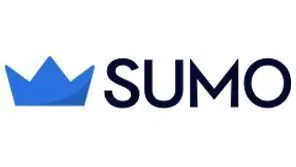Introduction
In the bustling marketplace of today, small businesses face an ongoing challenge: how to effectively generate leads that convert into loyal customers. While large corporations have the luxury of expansive budgets and extensive resources, small businesses must be more strategic, leveraging innovative tools to stay competitive. This comprehensive guide will delve into the best lead generation tools tailored for small businesses, helping them streamline their efforts and maximize their potential for growth.
Introduction to Lead Generation for Small Businesses
Lead generation is the process of attracting and converting strangers and prospects into someone who has indicated interest in your company’s product or service. For small businesses, mastering this process is critical. Effective lead generation ensures a steady flow of potential customers, which is essential for business growth and sustainability.
Why Lead Generation is Crucial for Small Businesses
- Sustained Growth: Consistent lead generation fuels business expansion by continuously feeding the sales pipeline.
- Cost-Effective Marketing: Targeted lead generation helps in optimizing marketing spend by focusing efforts on potential customers who are more likely to convert.
- Competitive Advantage: In a crowded market, efficient lead generation can set a small business apart from its competitors.
Challenges Faced by Small Businesses in Lead Generation
- Limited Resources: Small businesses often operate with limited budgets and smaller teams, making it challenging to run extensive lead generation campaigns.
- Market Saturation: Competing with larger firms with more substantial marketing budgets can be daunting.
- Keeping Up with Technology: Rapid technological advancements can be hard to keep up with, requiring constant learning and adaptation.
Overview of Lead Generation Tools
Lead generation tools are software solutions designed to help businesses capture, track, and convert leads. They range from email marketing platforms to customer relationship management (CRM) systems, social media tools, and more. The right mix of these tools can automate and optimize various aspects of lead generation, saving time and increasing efficiency.
Categories of Lead Generation Tools
- Email Marketing Tools
- Customer Relationship Management (CRM) Systems
- Social Media Management Tools
- Landing Page Builders
- SEO and Content Marketing Tools
- Web Analytics Tools
- Lead Capture Tools
- Automation Tools
Top Lead Generation Tools for Small Businesses
Email Marketing Tools

1. Mailchimp
Overview: Mailchimp is a leading email marketing service provider that offers a wide range of tools for creating and managing email campaigns.
Features:
- Drag-and-drop email builder
- Segmentation and personalization options
- A/B testing
- Analytics and reporting
- Integration with other marketing tools
Benefits:
- User-friendly interface
- Extensive template library
- Free tier available for small businesses
Use Case: Ideal for small businesses looking to build and nurture their email lists with minimal technical know-how.

2. Constant Contact
Overview: Constant Contact offers email marketing services with a focus on small businesses, providing easy-to-use tools for email campaigns.
Features:
- Email templates
- List management
- Autoresponders
- Event management
- Social media integration
Benefits:
- Excellent customer support
- High deliverability rates
- Comprehensive online training resources
Use Case: Suitable for small businesses that require robust customer support and educational resources to enhance their email marketing efforts.
Customer Relationship Management (CRM) Systems

1. HubSpot CRM
Overview: HubSpot CRM is a free, user-friendly CRM solution that helps small businesses manage their contacts and streamline their sales processes.
Features:
- Contact management
- Email tracking
- Sales pipeline management
- Task automation
- Reporting and analytics
Benefits:
- Completely free with no time limit
- Integrates seamlessly with other HubSpot tools
- Intuitive and easy to use
Use Case: Perfect for small businesses seeking a powerful yet cost-effective CRM solution to manage their customer relationships.

2. Zoho CRM
Overview: Zoho CRM is a cloud-based solution designed to help businesses of all sizes manage their customer relationships and sales pipelines.
Features:
- Lead management
- Workflow automation
- Analytics and reporting
- Multichannel communication
- Customizable dashboards
Benefits:
- Affordable pricing plans
- Extensive customization options
- Integration with numerous third-party applications
Use Case: Ideal for small businesses looking for a highly customizable CRM solution that can grow with their needs.
Social Media Management Tools

1. Hootsuite
Overview: Hootsuite is a comprehensive social media management tool that allows businesses to manage all their social media accounts from a single dashboard.
Features:
- Scheduling and publishing
- Social media monitoring
- Analytics and reporting
- Team collaboration
- Integration with other marketing tools
Benefits:
- Supports multiple social networks
- Powerful scheduling capabilities
- Detailed analytics
Use Case: Best suited for small businesses that need to manage multiple social media accounts and engage with their audience effectively.

2. Buffer
Overview: Buffer is a social media scheduling tool that simplifies the process of sharing content across various social networks.
Features:
- Post scheduling
- Content planning
- Analytics
- Team collaboration
- Mobile app
Benefits:
- Clean and user-friendly interface
- Affordable pricing
- Excellent customer support
Use Case: Ideal for small businesses seeking a straightforward tool to schedule and analyze their social media posts.
Landing Page Builders

1. Unbounce
Overview: Unbounce is a leading landing page builder that helps businesses create high-converting landing pages without needing technical skills.
Features:
- Drag-and-drop builder
- A/B testing
- Conversion analytics
- Dynamic text replacement
- Integration with marketing tools
Benefits:
- Easy to use with no coding required
- Extensive template library
- Powerful optimization tools
Use Case: Suitable for small businesses looking to create professional landing pages quickly and easily.

2. Leadpages
Overview: Leadpages is a landing page builder designed to help businesses generate leads and convert them into customers.
Features:
- Drag-and-drop editor
- Mobile-responsive templates
- A/B testing
- Pop-ups and alert bars
- Integration with other marketing tools
Benefits:
- Intuitive interface
- Extensive customization options
- High-converting templates
Use Case: Ideal for small businesses that want to create effective landing pages and grow their email lists.
SEO and Content Marketing Tools
1. Ahrefs
Overview: Ahrefs is an all-in-one SEO toolset that helps businesses improve their search engine rankings and drive organic traffic.
Features:
- Keyword research
- Backlink analysis
- Site audit
- Rank tracking
- Content explorer
Benefits:
- Comprehensive SEO insights
- User-friendly interface
- Regular updates and improvements
Use Case: Perfect for small businesses looking to enhance their SEO strategy and improve their online visibility.

2. SEMrush
Overview: SEMrush is a powerful digital marketing tool that offers a wide range of features for SEO, content marketing, and competitive analysis.
Features:
- Keyword research
- Site audit
- Backlink analysis
- Content optimization
- Competitor analysis
Benefits:
- Extensive database
- User-friendly interface
- Versatile toolset
Use Case: Suitable for small businesses that need a comprehensive tool for SEO and content marketing.
Web Analytics Tools

1. Google Analytics
Overview: Google Analytics is a free web analytics service that provides insights into website traffic and user behavior.
Features:
- Traffic analysis
- Audience segmentation
- Conversion tracking
- Custom reports
- Integration with other Google tools
Benefits:
- Free to use
- Comprehensive insights
- Easy integration
Use Case: Ideal for small businesses that want to understand their website traffic and optimize their online presence.
2. Hotjar
Overview: Hotjar is a behavior analytics tool that helps businesses understand how users interact with their websites.
Features:
- Heatmaps
- Session recordings
- Surveys
- Feedback polls
- Conversion funnels
Benefits:
- Visual insights
- User-friendly interface
- Affordable pricing
Use Case: Suitable for small businesses that want to improve their website’s user experience and conversion rates.
Lead Capture Tools

1. OptinMonster
Overview: OptinMonster is a powerful lead-generation tool that helps businesses convert website visitors into subscribers and customers.
Features:
- Drag-and-drop builder
- Multiple form types
- Exit-intent technology
- A/B testing
- Analytics and reporting
Benefits:
- Easy to use
- High-converting templates
- Advanced targeting options
Use Case: Ideal for small businesses looking to grow their email lists and increase conversions.

2. Sumo
Overview: Sumo offers a suite of tools designed to help businesses capture leads, grow their email lists, and increase website traffic.
Features:
- List builder
- Social sharing
- Heatmaps
- Content analytics
- Welcome mats
Benefits:
- Easy integration
- User-friendly interface
- Free tier available
Use Case: Suitable for small businesses that want to capture leads and enhance their website’s performance.
Automation Tools

1. Zapier
Overview: Zapier is an automation tool that connects different apps and services, allowing businesses to automate repetitive tasks.
Features:
- Workflow automation
- App integrations
- Customizable triggers and actions
- Multi-step workflows
- Easy setup
Benefits:
- Saves time
- Improves efficiency
- Supports a wide range of apps
Use Case: Ideal for small businesses that want to streamline their workflows and automate repetitive tasks.

2. ActiveCampaign
Overview: ActiveCampaign is a comprehensive marketing automation platform that combines email marketing, automation, and CRM.
Features:
- Email marketing
- Automation workflows
- CRM
- Segmentation and personalization
- Reporting and analytics
Benefits:
- Powerful automation capabilities
- User-friendly interface
- Excellent customer support
Use Case: Suitable for small businesses looking for an all-in-one marketing automation solution.
Integrating Lead Generation Tools for Maximum Impact
Choosing the right lead generation tools is just the first step. To maximize their impact, it’s essential to integrate these tools seamlessly into your existing processes and workflows. Here are some tips for effective integration:
1. Define Your Goals
Before integrating any tools, clearly define your lead generation goals. Are you looking to increase website traffic, grow your email list, or improve your social media engagement? Understanding your objectives will help you choose the right tools and set up effective workflows.
2. Choose Compatible Tools
Ensure that the tools you select can easily integrate with each other and your existing systems. Many lead generation tools offer integrations with popular platforms like CRM systems, email marketing services, and analytics tools.
3. Automate Where Possible
Leverage automation to streamline your lead generation efforts. Tools like Zapier and ActiveCampaign can help automate repetitive tasks, freeing up time for your team to focus on more strategic activities.
4. Monitor and Optimize
Regularly monitor the performance of your lead generation tools and campaigns. Use analytics and reporting features to track key metrics, identify areas for improvement, and optimize your strategies accordingly.
5. Keep Learning
The digital marketing landscape is constantly evolving. Stay up to date with the latest trends, best practices, and new tools to ensure your lead generation efforts remain effective and competitive.
Conclusion
Effective lead generation is the lifeblood of any small business. By leveraging the right tools and strategies, small businesses can overcome resource limitations, compete with larger firms, and achieve sustained growth. From email marketing and CRM systems to social media management and automation tools, the options are vast and varied. The key is to select the tools that best align with your business goals, integrate them seamlessly into your workflows, and continuously monitor and optimize your efforts.
With the right approach and the power of innovative lead generation tools, small businesses can attract and convert more leads, build lasting customer relationships, and thrive in today’s competitive marketplace.












